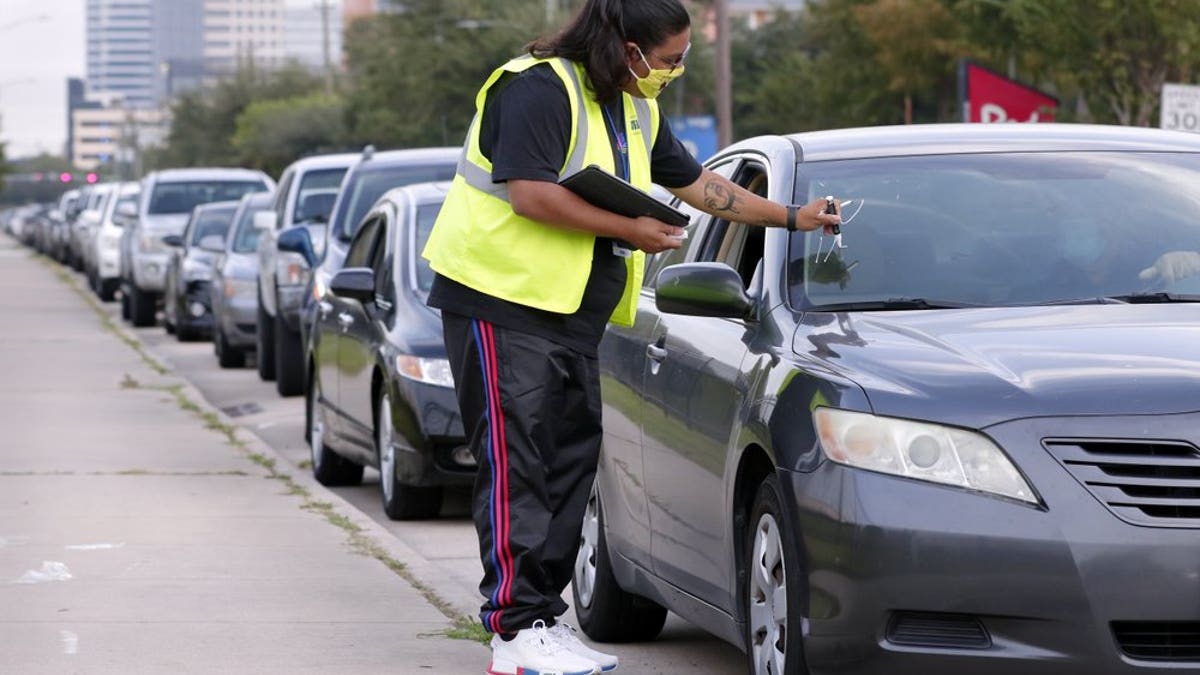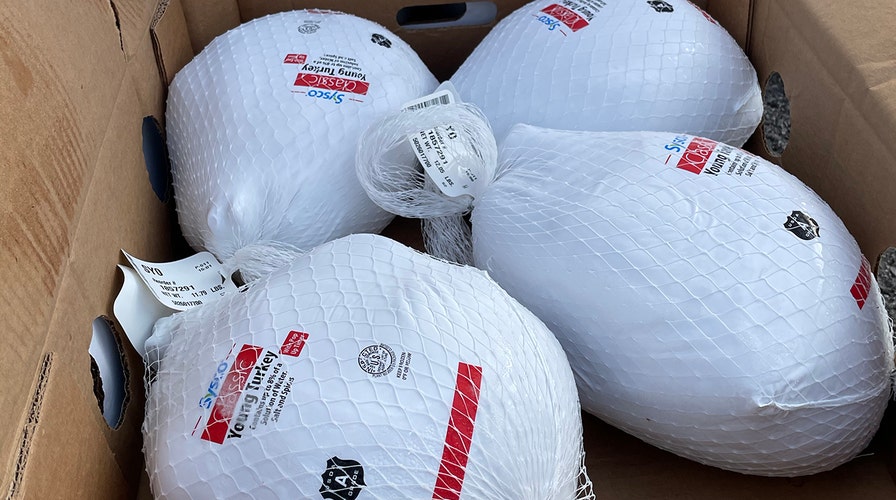Fox News Flash top headlines for November 24
Fox News Flash top headlines are here. Check out what's clicking on Foxnews.com.
Massive lines have cropped up at food banks around the nation ahead of the 2020 holiday season.
Reports from California, Wisconsin, New York, Texas, South Carolina and other states indicate many of the people waiting for assistance never needed help before this year when the coronavirus pandemic shut down swaths of businesses and sent unemployment surging.
In Rhode Island, food insecurity has left residents in dire straits not encountered since the Great Depression, The Providence Journal wrote on Monday. Some 25% of respondents to the Rhode Island Community Food Bank’s 2020 status report admitted they were unable to provide enough food for themselves and their families, up from just over 9% in 2019.
Food banks in California's Bay Area that had served 1,400 households per month in February are now expecting that figure to skyrocket, reaching 4,400 households this month, according to KTVU.
An October survey of 2,000 Americans conducted by Danone North America's Two Good Yogurt found that 79% were struggling with food insecurity, 60% said the expiration of federal stimulus made it harder to put food on the table and 37% have skipped meals in order to feed their children.
"We found that for 40% of respondents, COVID-19 contributed to their first experience with food insecurity," Danone North America Vice President of Marketing Surbhi Martin explained. "Of this group, 63% did not realize they were food insecure -- indicating a clear discrepancy in our collective understanding of what constitutes food insecurity in the first place."

Volunteer Sharely Gomez marks the windshield after taking information from clients in their cars as they wait for food distribution at West Houston Assistance Ministries on Wednesday, Oct. 14, 2020, in Houston. (AP Photo/Michael Wyke)
While Americans have been laid off in droves during the pandemic, bills still came and the demand for food did not lessen. The Pew Research Center affirmed that food insecurity has risen significantly this year.
COVID-19 has greatly exacerbated a challenge that nonprofit food bank network Feeding America notes affected about 35 million Americans in 2019 -- 11 million of whom were children.
The organization also estimated that 17 million people could become food insecure this year, making for a total of more than 54 million.
The U.S. Bureau of Labor Statistics predicts that assuming the poverty rate comes in at over 14% this year, more than 60 million will be affected, including 17 million children.
Since the beginning of the pandemic, approximately 7 million Americans have enrolled in the federal Supplemental Nutrition Assitance Program (SNAP), and demand has increased sharply at organizations that donate meals.
Many food banks are bracing for a "food cliff" when they may be forced to cut down their supply, CNBC reported last week.
Most food comes from donations, and the Boy Scouts of America and U.S. Postal Carriers were forced to postpone or alter their food drives this year.
Many of the nearly 30 million children who qualified for free or discounted lunches also lost their food sources with the closing of schools and day care centers.
Perhaps critically significant over the next year, the Association of American Medical Colleges reported in October that food insecurity and limited nutrition put individuals at higher risk for coronavirus complications -- often disproportionately impacting people of color, seniors and those living in low-income communities.
A U.S. Department of Agriculture report found in 2017 that food insecurity was associated with 10 of the deadliest and costliest diseases in the country.
“Though the factors underlying racial and ethnic disparities in COVID-19 in the United States are multifaceted and complex, long-standing disparities in nutrition and obesity play a crucial role in the health inequities unfolding during the pandemic,” physicians pointed out in a September article published in the New England Journal of Medicine.
CLICK HERE FOR THE FOX NEWS APP
“A healthy diet, rich in fruits and vegetables and low in sugar and calorie-dense processed foods, is essential to health," they said. "The ability to eat a healthy diet is largely determined by one’s access to affordable, healthy foods — a consequence of the conditions and environment in which one lives.”












































